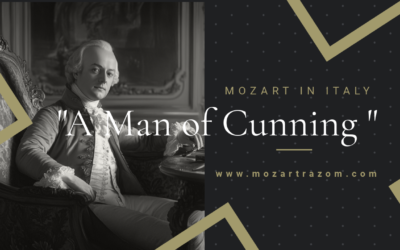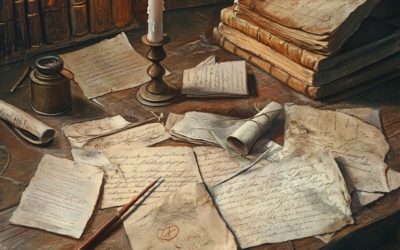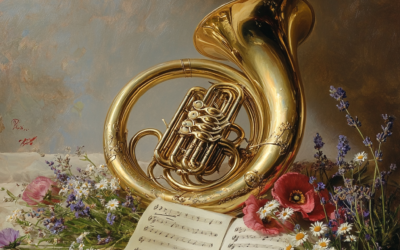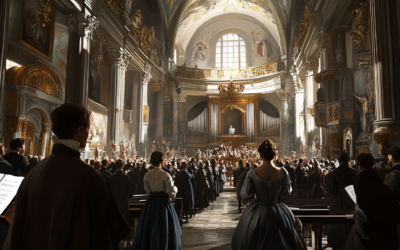The London Notebook
Mozart's Early Missteps and Misconceptions
The London Notebook exposes the limitations of young Mozart’s compositional skills and questions the myth of his early genius. His simplistic pieces, fraught with errors, reveal a child still grappling with fundamental musical concepts.
Mozart: The Fall of the Gods
This book offers a fresh and critical look at the life of Wolfgang Amadeus Mozart, challenging the myths that have surrounded him for centuries. We strip away the romanticised image of the “natural genius” and delve into the contradictions within Mozart’s extensive biographies. Backed by nearly 2,000 meticulously sourced citations, this work invites readers to explore a deeper, more complex understanding of Mozart. Perfect for those who wish to question the traditional narrative, this biography is a must-read for serious music lovers and historians.
“The celebrated music from this period may owe more to Leopold’s influence than to Wolfgang’s own abilities.”
Mozart: The Fall of the Gods
In September 1764, Leopold Mozart penned a letter to Lorenz Hagenauer from Chelsea, revealing that he had been gravely ill since early July. During this period, young Wolfgang Mozart, then only eight years old, was compelled to pause his concert tours and spend nearly two months in Chelsea. This hiatus led Wolfgang to compose a collection of forty-three simple keyboard pieces, recorded in a notebook Leopold titled ‘di Wolfgango Mozart à Londra’ (by Wolfgango Mozart in London).
These compositions are often dismissed as mere exercises for a child, lacking the complexity and sophistication associated with Mozart’s later works. Unlike Beethoven’s sketchbooks, which are revered for their insights into his compositional processes, Mozart’s London Notebook reveals the young composer’s experimental attempts at various forms and structures, but with little success. The period of inactivity due to Leopold’s illness and Wolfgang’s lack of keyboard access led him to create pieces that, while intended as exercises, are frequently criticised for their lack of harmonic sophistication and compositional maturity.
Critics like Abert have downplayed the significance of these works, suggesting they are nothing more than trivial exercises. Yet, these pieces provide valuable insight into the music that captivated audiences of the time. However, it is crucial to acknowledge that some of these pieces might not even be by Mozart himself; they could have been composed by others or inspired by the music Wolfgang heard during his travels. The truth is, many of the pieces in the London Notebook are rudimentary and exhibit common errors for a child of his age. They display parallel octaves, fifths, and dissonant sequences, and reveal a general lack of advanced compositional techniques such as counterpoint and complex harmony.
Moreover, the praise often attributed to Mozart’s early works is questionable. The celebrated music from this period may owe more to Leopold’s influence and contributions than to Wolfgang’s own abilities. The claim that Mozart had achieved significant compositional milestones at such a young age is contradicted by the evidence presented in this notebook. It suggests that the acclaim for Mozart’s early works may be misplaced and more accurately reflects Leopold’s organisational and compositional role.
The London Notebook’s simplistic pieces and frequent errors highlight the limitations of a young Mozart who was still developing his musical skills. Claims that Mozart could have composed complex fugues or improvised sophisticated music with Johann Christian Bach are dubious at best. The reality of these early compositions demonstrates that young Wolfgang’s abilities were far from the prodigious genius later attributed to him.
In the end, the London Notebook offers a sobering look at Mozart’s early compositions, revealing a child artist grappling with musical concepts that would only later be refined. The current critical editions that attempt to correct these youthful mistakes often replace Mozart’s original intent with more polished versions, thus obscuring the true nature of his early work.
You May Also Like
A Revolutionary Encounter at Cremona Musica
Sharing insights on Mozart and the Neapolitan school at Cremona Musica, the premier global stage for music and culture.
#1 A Man of Cunning
In the end, Leopold Mozart’s life was a testament to survival in a world where his talents were often overshadowed by those of his more gifted contemporaries and his own son. While his “Violinschule” remains a notable contribution to music pedagogy, it is clear that Leopold’s legacy is as much about his ability to navigate the challenges of his time as it is about his musical achievements. His story is one of ambition, adaptation, and the lengths to which one man would go to secure his place in history, even if that place was built on borrowed foundations.
@MozartrazoM
Mozart’s Letters: A Legacy of Disappearances, Edits, and Forgeries
Mozart’s letters reveal missing originals, questionable authorship, and forgeries, adding complexity to his legacy.
The Curious Case of Mozart’s “Lullaby”
Though long credited to Mozart, the lullaby “Schlafe mein Prinzchen, schlaf ein” hides a murky history. Initially published by Nissen, Constanze’s second husband, it has endured as one of Mozart’s supposed works—despite a trail of doubts. In 1798, Constanze herself noted sending “another piece of Mozart’s in place of the lullaby,” raising questions about its origins. By the 20th century, researchers revealed it as the work of lesser-known composers, yet it remains deceptively tied to Mozart, its myth surviving through mere footnotes.
The Contradictions Behind Mozart’s Horn Concerto K.412
The authenticity of Mozart’s Horn Concerto K.412 remains hotly debated, as the work bears numerous contradictions in its manuscript history. The first movement may be original, but what about the rest? The inclusion of Franz Xaver Süssmayr and later editorial meddling raises serious questions about what we are really listening to when we hear this ‘Mozart’ concerto.
The Questionable Attribution of Mozart’s Offertorium K.34
Attributing Offertorium K.34 to Mozart is not just misleading, it reflects the careless methods used by 19th-century scholars to inflate his legacy. Without an autograph or solid evidence, this work should not be considered part of his output.”







